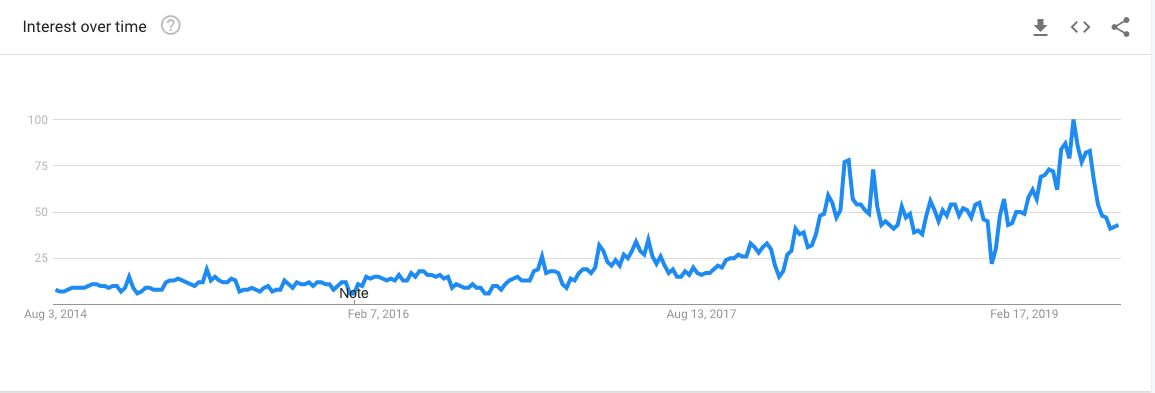Businesses, governments, and non-profits have a major thing in common: the desire to influence people’s actions. What differs is the type and volume of people they each want to nudge. When your aim is to save the planet, or more specifically, our oceans, your audience is literally everyone. Because no matter who you are or where you call home, the health of our oceans will define your future.

Google trends: “Plastic ocean”. Click to expand.
Our approach has been to combine education and research initiatives with communications and PR campaigns that tap into both people’s rational and emotional selves.
Educating current and future decision-makers
We fund, review and promote research about the impact of plastic in our oceans, working with the Institute of Environment, Health, and Societies Department at Brunel University London to verify the scale of the problem and why we need to protect our oceans. Presenting the cold hard facts to policymakers and businesses makes it difficult for decision-makers to deny the problems and the need for change.
Shock and awe
More often than not, facts and stats alone are not enough to inspire change, or even to draw proper attention to an issue. People need an emotional trigger to really give pause and pay attention. We design our campaigns to do just that.
Targeting British attitudes towards plastic in the ocean probably doesn’t get more on the nose than our Future of Fish and Chips campaign. If fish don’t grow and reproduce because they are eating plastic instead of plankton, will this be the end of our beloved national dish? To get lovers of the dish thinking about the problem in this context, we teamed up with a local chippie and served battered plastic, instead of fish, to unsuspecting customers who were rightfully outraged by the meal presented to them. How’s that for food for thought?